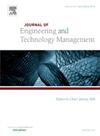多阶段采用人工智能的关键成功因素:必要条件分析
IF 3.9
3区 管理学
Q2 BUSINESS
Journal of Engineering and Technology Management
Pub Date : 2023-07-01
DOI:10.1016/j.jengtecman.2023.101760
引用次数: 0
摘要
尽管广泛宣传,人工智能(AI)的采用仍然相对有限。一个重要的原因是缺乏对采用过程中关键因素的洞察。本研究回顾了有关人工智能和几种类似技术的文献,以确定成功因素,并采用必要条件分析(NCA)来实证评估在采用的各个阶段所确定因素的重要性。研究结果表明,在人工智能采用的不同阶段,性能预期、高层管理支持、技术能力和资源、感知易用性、组织兼容性和贸易伙伴杠杆的重要性不同。本文章由计算机程序翻译,如有差异,请以英文原文为准。
Critical Success Factors in a multi-stage adoption of Artificial Intelligence: A Necessary Condition Analysis
Notwithstanding the widespread publicity, Artificial Intelligence (AI) adoption has remained relatively limited. One important reason is a lack of insight into critical factors in the adoption process. This study reviews the literature on AI and several similar technologies to identify success factors and employs Necessary Condition Analysis (NCA) to empirically assess the criticality of the identified factors across various stages of adoption. The findings evidence the necessity of performance expectancy, top management support, technical competencies and resources, perceived ease of use, organizational compatibility, and trading partner leverage with varying levels of criticality across various stages of AI adoption.
求助全文
通过发布文献求助,成功后即可免费获取论文全文。
去求助
来源期刊
CiteScore
8.00
自引率
6.20%
发文量
29
审稿时长
>12 weeks
期刊介绍:
The Journal of Engineering and Technology Management (JET-M) is an international scholarly refereed research journal which aims to promote the theory and practice of technology, innovation, and engineering management.
The journal links engineering, science, and management disciplines. It addresses the issues involved in the planning, development, and implementation of technological capabilities to shape and accomplish the strategic and operational objectives of an organization. It covers not only R&D management, but also the entire spectrum of managerial concerns in technology-based organizations. This includes issues relating to new product development, human resource management, innovation process management, project management, technological fusion, marketing, technological forecasting and strategic planning.
The journal provides an interface between technology and other corporate functions, such as R&D, marketing, manufacturing and administration. Its ultimate goal is to make a profound contribution to theory development, research and practice by serving as a leading forum for the publication of scholarly research on all aspects of technology, innovation, and engineering management.

 求助内容:
求助内容: 应助结果提醒方式:
应助结果提醒方式:


